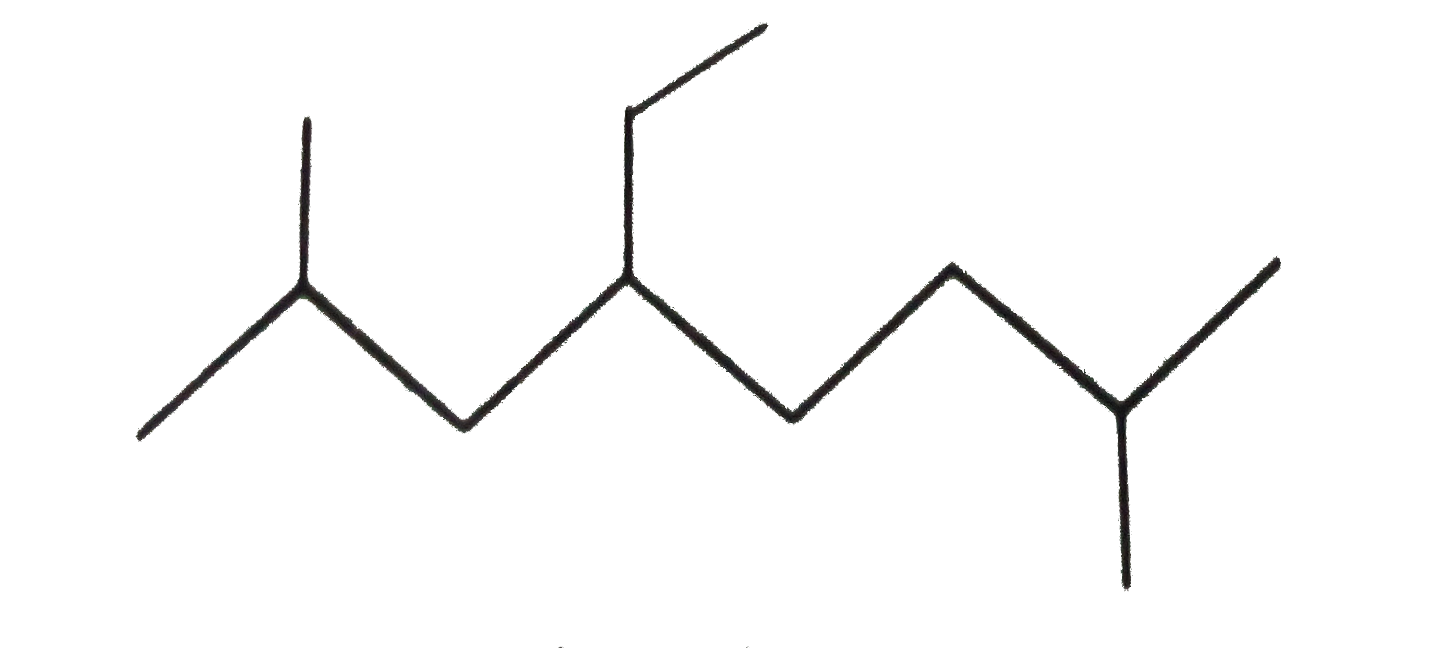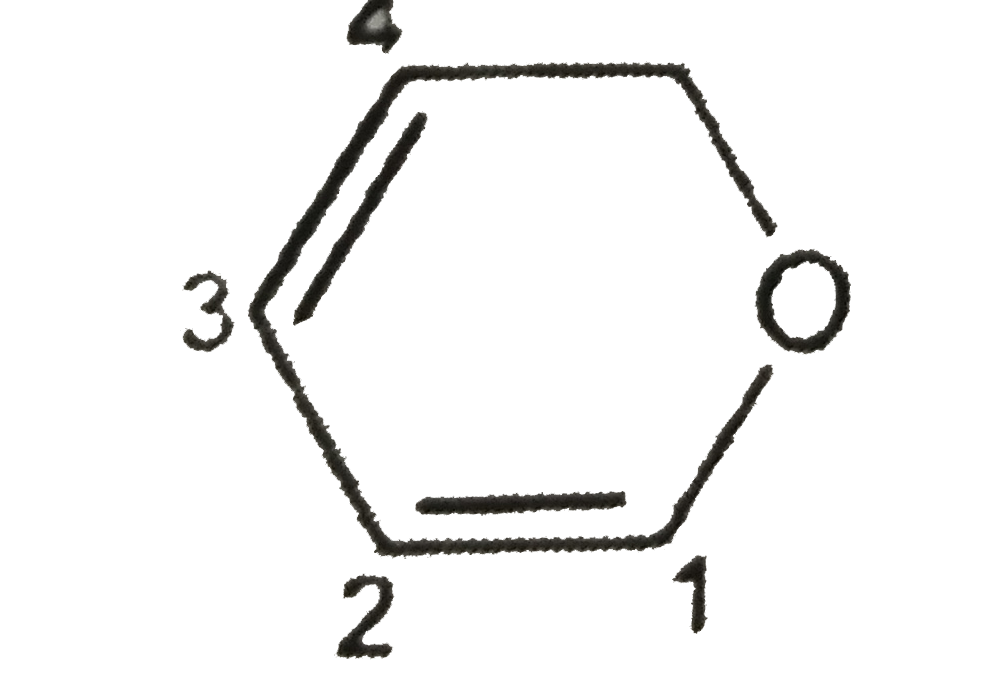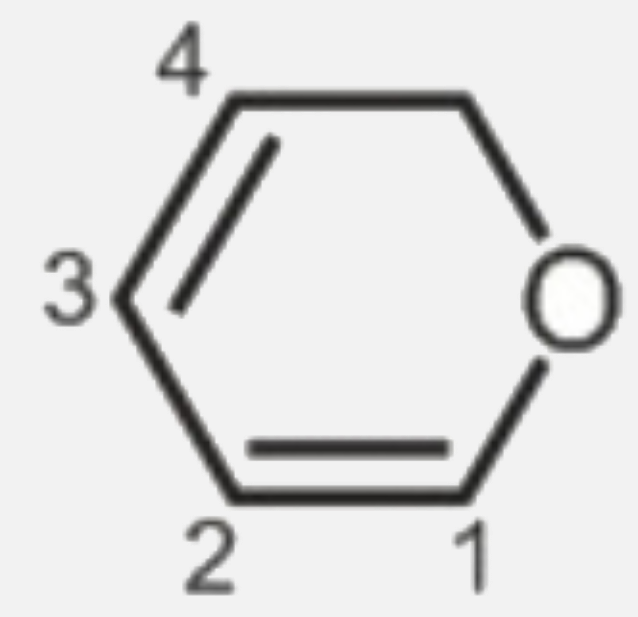The resonance effect is defined as 'the polarity produced in the molecule by the interaction of two π-bonds or between a π-bond and lone pair of electrons present on an adjacentatom.' The effect is transmitted through the chain.
In positive resonance effect, the transfer of electrons is away from an atom or substituent group attached to the conjugated system. This electron displacement makes certain positions in the molecule of high electron densities. In negative resonance effect, the transfer of electrons is towards the atom or substituent group attached to the conjugated system.
What is the IUPAC name for :

5-isobutyl-2-methylheptane
4-ethyl-2, 7-dimethylocatne
5- ehtyl-2, 7-dimethyloctane
2-methyl-5-(2-methylpropyl) heptane.
The correct Answer is:B
1CH3−2CH−3CH2−4CH−5CH2−6CH2−7CH−8CH3 | | | CH3 CH2 CH3 | CH3
4-ethyl-2, 7-dimethyloctane.
Similar Questions
The resonance effect is defined as 'the polarity produced in the molecule by the interaction of two π-bonds or between a π-bond and lone pair of electrons present on an adjacentatom.' The effect is transmitted through the chain.
In positive resonance effect, the transfer of electrons is away from an atom or substituent group attached to the conjugated system. This electron displacement makes certain positions in the molecule of high electron densities. In negative resonance effect, the transfer of electrons is towards the atom or substituent group attached to the conjugated system.
Which of the following does not show resonance effect ?
View SolutionThe resonance effect is defined as 'the polarity produced in the molecule by the interaction of two π-bonds or between a π-bond and lone pair of electrons present on an adjacentatom.' The effect is transmitted through the chain.
In positive resonance effect, the transfer of electrons is away from an atom or substituent group attached to the conjugated system. This electron displacement makes certain positions in the molecule of high electron densities. In negative resonance effect, the transfer of electrons is towards the atom or substituent group attached to the conjugated system.
Which of the following shows +M effect ?
View Solution
Knowledge Check
The number of lone pair of electrons on each atom of oxygen molecule is
A1B2C3Dnil
The resonance effect is defined as 'the polarity produced in the molecule by the interaction of two π-bonds or between a π-bond and lone pair of electrons present on an adjacentatom.' The effect is transmitted through the chain.
In positive resonance effect, the transfer of electrons is away from an atom or substituent group attached to the conjugated system. This electron displacement makes certain positions in the molecule of high electron densities. In negative resonance effect, the transfer of electrons is towards the atom or substituent group attached to the conjugated system.
Which of the following carboxylate ions is the most stable ?
View SolutionThe resonance effect is defined as 'the polarity produced in the molecule by the interaction of two π-bonds or between a π-bond and lone pair of electrons present on an adjacentatom.' The effect is transmitted through the chain.
In positive resonance effect, the transfer of electrons is away from an atom or substituent group attached to the conjugated system. This electron displacement makes certain positions in the molecule of high electron densities. In negative resonance effect, the transfer of electrons is towards the atom or substituent group attached to the conjugated system.
Which of the following intermediates is pyramidal in shape ?
View SolutionThe resonance effect is defined as 'the polarity produced in the molecule by the interaction of two π-bonds or between a π-bond and lone pair of electrons present on an adjacent atom.' The effect is transmitted through the chain.
In positive resonance effect, the transfer of electrons is away from an atom or substituent group attached to the conjugated system. This electron displacement makes certain positions in the molecule of high electron densities. In negative resonance effect, the transfer of electrons is towards the atom or substituent group attached to the conjugated system.
Which of the following free radicals is the most stable ?
View SolutionThe resonance effect is defined as 'the polarity produced in the molecule by the interaction of two π-bonds or between a π-bond and lone pair of electrons present on an adjacentatom.' The effect is transmitted through the chain.
In positive resonance effect, the transfer of electrons is away from an atom or substituent group attached to the conjugated system. This electron displacement makes certain positions in the molecule of high electron densities. In negative resonance effect, the transfer of electrons is towards the atom or substituent group attached to the conjugated system.
The correct statement regarding a carbonyl compound with a hydrogen atom on its alpha carbon, is
View Solution
In this molecules, π-electron density is more on :
View Solution
In this molecules, π− electron - density is more on
View SolutionDue to screening effect of electrons in an atom
View Solution
